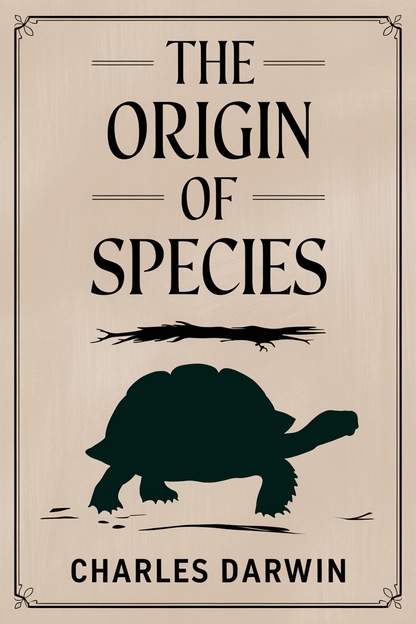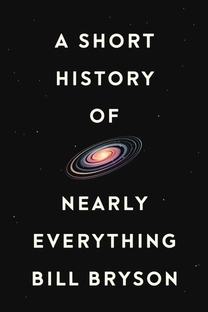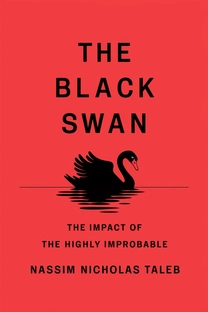
The Origin of Species
by Charles Darwin
Brief overview
This book explores how living creatures adapt and diversify through countless generations, fueled by competition and environmental pressures. It shows that species are not static, but instead form branches of a vast tree of life, shaped by gradual shifts and critical interactions with nature. Readers will witness how small variations can have immense consequences over time, leading to the remarkable tapestry of organisms we see around us today.
Introduction
Imagine strolling through the countryside, noticing birds, insects, and endless plant varieties. It may seem peaceful, but beneath this calm surface, each organism struggles for limited resources, space, and survival. In these pages, you will discover how those struggles shape entire species over vast stretches of time.
We begin by examining the notion that living things spring from common ancestors. By comparing this to a family tree – only on a grand scale – we realize that species we see today are connected by ancient shared origins, modified along winding evolutionary paths.
To understand this journey, it’s essential to look at the subtle differences within species: no two individuals are precisely the same. These variations, sometimes minute, hold the potential of conferring advantages. Over ages, these helpful traits can accumulate, powering dramatic transformations.
Our introduction orients you to the big questions: Why do certain organisms flourish while others fade into extinction? What drives the emergence of new forms? Get ready for a thought-provoking exploration of the forces that sculpt our planet’s incredible variety of life.
Variation and the Power of Small Differences
Look closely at any population of animals or plants: you will spot individuals with slightly different sizes, colors, or stamina. While these contrasts often seem trivial, they can be crucial. If an environment changes or a competitor arrives, that slight edge in foraging ability or resilience might mean the difference between living and dying.
These individual distinctions can become the raw material for natural selection. Imagine a series of generations where the best-adapted individuals keep surviving, passing on traits that help them cope with challenges like predators, climate shifts, or new diseases. The population gradually shifts toward these winning traits.
Not every difference matters. Some changes bring no advantage at all or could even be harmful. What counts is whether a variation boosts survival and reproduction. Over time, these small differences can accumulate into large transformations, guiding the course of life itself.
What is The Origin of Species about?
"The Origin of Species" by Charles Darwin is a cornerstone of biological literature, presenting the groundbreaking theory of natural selection. Darwin's observations and carefully collected evidence paint a picture of life as a dynamic, interconnected web, constantly evolving through variation, competition, and environmental pressures. Unlike the static view of species as immutable fixtures, Darwin propounds that each species is a branch on the vast tree of life, continuously shaped by gradual processes.
Delving into themes of adaptation, struggle for existence, and survival of the fittest, this work challenges readers to see the natural world from a fresh perspective. Darwin unravels the intricate dance of variations within species that lead to significant evolutionary shifts. His work underscores why some species flourish while others face extinction, revealing the hidden processes that fuel life’s incredible diversity. It’s an invitation to appreciate the profound interconnectedness of all living beings and the relentless force of natural selection.
Review of The Origin of Species
In "The Origin of Species," Darwin masterfully articulates the transformative power of natural selection, offering readers valuable insights into the mechanisms of evolution. One of its key strengths lies in Darwin's ability to synthesize vast amounts of empirical evidence, woven together with a narrative that is both comprehensive and accessible. The intricacies of variation and adaptation are meticulously explained, shedding light on the profound yet simple principle that advantageous traits naturally become more prevalent over time.
The book's practical applications are vast, providing a foundational understanding for advancements in fields like genetics, ecology, and conservation biology. Its open style makes it accessible to readers from all walks of life, bridging the gap between academic research and layman's curiosity. Although steeped in 19th-century language, Darwin's clear prose transcends time, guiding readers through complex scientific concepts with grace and clarity.
Highly suitable for students, educators, and anyone with a passion for natural history, "The Origin of Species" remains a seminal text, despite the scientific advancements since its publication. It's a compelling reminder of nature’s elegance, driving home the realization that humanity itself is woven into life's rich tapestry. For the curious mind willing to wrestle with profound ideas, this book is a must-read, promising not just an understanding of evolution but a deeper appreciation of life’s intricacies.
Who should read The Origin of Species?
- Biology students and educators seeking foundational insights into evolutionary theory.
- Environmental scientists and conservationists aiming to understand natural variation and adaptation processes.
- History buffs interested in the paradigm-shifting scientific advancements of the 19th century.
- Science enthusiasts and curious minds fascinated by the natural world and its complexities.
- Philosophers and anthropologists exploring the implications of evolution on human thought and society.
About the author
Book summaries like The Origin of Species
Why readers love Mindleap
10-Minute Book Insights
Get the core ideas from the world's best books in just 10 minutes of reading or listening.
Curated For You
Discover your next favorite book with personalized recommendations based on your interests.
AI Book ExpertNew
Chat with our AI to help find the best book for you and your goals.
Reviews of MindLeap
Love how I can get the key ideas from books in just 15 minutes! Perfect for my busy schedule and helps me decide which books to read in full.
Alex R.
The summaries are incredibly well-written and the audio feature is perfect for my commute. Such a time-saver!
Jessica M.
Great app for personal growth. The insights are clear and actionable, and I love how they capture the essence of each book.
Chris P.
The app is beautifully designed and the summaries are top-notch. Definitely worth every penny!
Sarah K.




